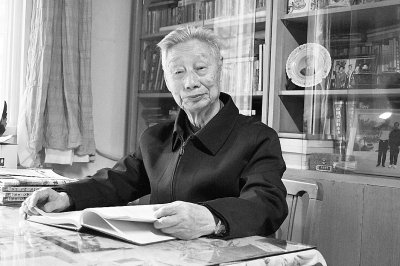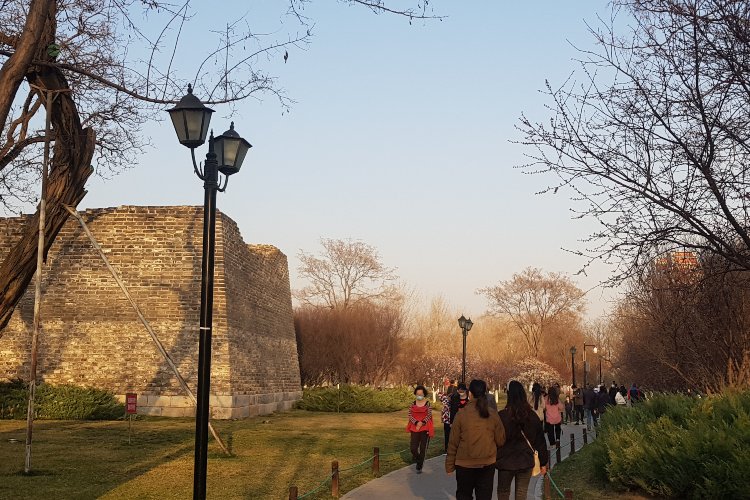Get Schooled on the History of Teacher's Day in China
If you happen to be a teacher, you may already be rolling in hongbao today for your noble service to the children of China. The rest of us plebs, meanwhile, should read up and let any teachers in our lives know that they are appreciated. That's because today is one of China's most beloved and venerable national holidays: Teacher's Day.

Teacher’s Day in China falls on Sep 10, which is easy to remember because 九十 jiǔ shí sounds a lot like 教授 jiàoshòu (professor). It’s not clear whether this mnemonic was considered when Teacher’s Day was established in 1985 or if the date was chosen arbitrarily, but regardless, the country has taken this day to remember the Chinese ideal of "respecting teachers and placing importance on education" for the past 34 years.
The long road to an official Teacher’s Day
It's taken some time to get to where we are today. Having a day of the year dedicated to celebrating teachers was first proposed in 1931, when a group of influential teachers chose Jun 6 as a day to meditate on the correct treatment of teachers and to (not entirely selflessly) ensure that the country's educators were gainfully employed. The holiday was never officially recognized, but it was celebrated informally in China until the People’s Republic was founded in 1949.
On two separate occasions, in 1939 and 2013, the suggestion was made to designate a Teacher's Day on Sep 28, the birthday of Confucius. The suggestion certainly made sense, given Confucius’ role as the "teacher of all teachers" in China. Even if his ideas are not so strictly adhered to nowadays, he is still hailed as the insurmountable educator, yet while the State Council mulled over the proposal, it was never adopted.
Starting in 1952, China’s Labor Day (May 1) was also informally observed as Teacher’s Day but as you could expect, due to the combination of holidays, the Teacher's Day part was gradually forgotten. It wasn’t until 33 years later that a letter to a newspaper would finally lead to a nationally recognized holiday in honor of teachers.
Wang Zikun and the Teacher's Day we know today
The improbable story of how Sep 10 became Teacher's Day as we know it begins with a young boy named Wang Senfu. In 1937, an eight-year-old Wang and his family moved to Ji’an County in Jiangxi province from his birthplace of Lingling, Hunan. Wang had previously only received one year of schooling, but due to his remarkable memory, and despite his young age, he soon made an impression on his new teacher. (It was also at this point that for whatever reason, his teacher changed Wang's name to Wang Zikun).
The young Wang was truly dedicated to his studies, and would later describe how he would walk more than 10km to school every day, and more than once crossed paths with a wolf, but never showed up late. A year into his Ji'an schooling, a new teacher was hired, bringing a new pedagogy with him. This new teacher didn’t just teach the Four Classics that had formerly been the focus of Wang's classes but also introduced arithmetic, music, and art. Though this was just a rural school, modernized education was arriving, and Wang was a firsthand witness to the transformation.

Having excelled in his primary studies, Wang went on to study at Wuhan University and Peking University, where he studied mathematics and Russian. He later earned his doctorate in probability theory in Moscow in 1958.
The passion for learning and the recognition of the impact that his teachers had on his life and career never left Wang. "I’m not sure why, but one day I woke up and said to myself, teachers should have their own day too," Wang is quoted as saying. In 1984, he wrote a letter to the Beijing Evening News outlining such an idea, and the letter caught the attention of a number of professors at Beijing Normal University, who put together a formal proposal for a National Teacher’s Day.
And thus it was so. Today, Teacher's Day continues to be a widely celebrated national day and having made a number of important contributions to both probability theory and education in China throughout his career, Wang, now 90, still resides in the Beijing-Tianjin area.
READ: 6 Fun Things to Do This Mid-Autumn Holiday, Sep 13-15
Images: China Plus, Opportunity China, Baidu







